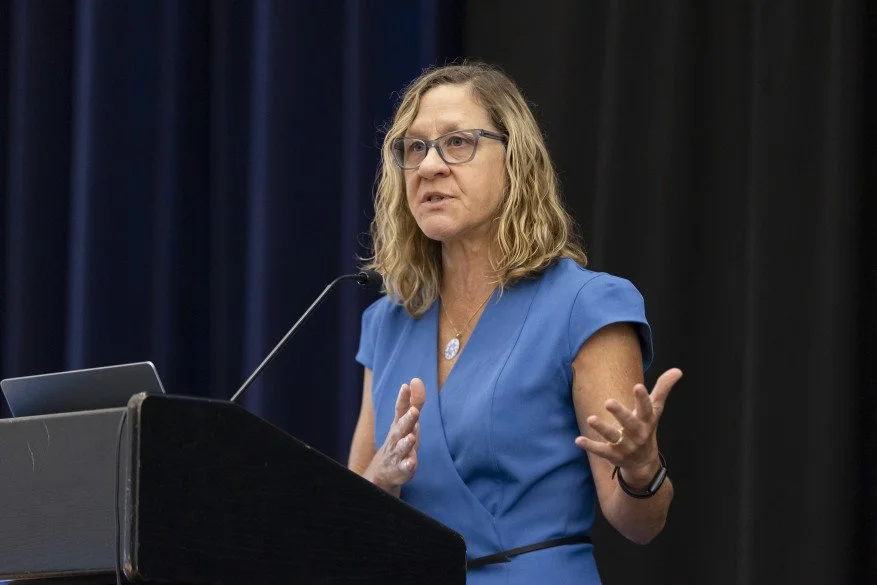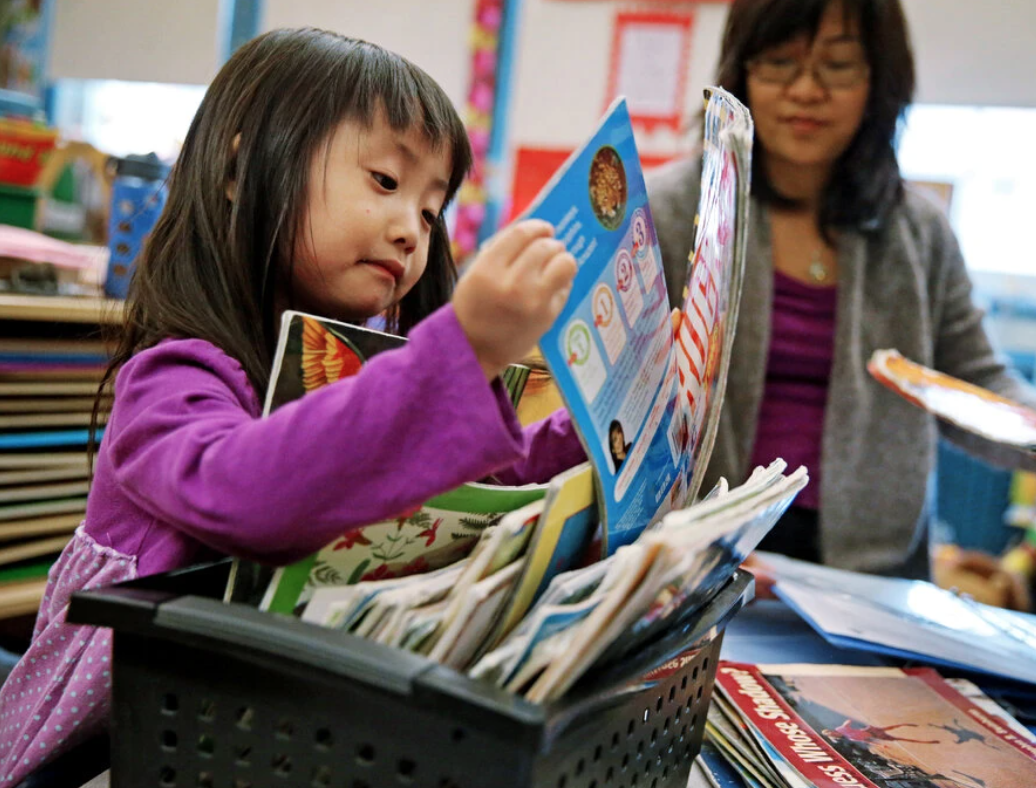In a column from CEPR, Marshall Burke, Solomon Hsiang, and Ted Miguel review literature on the relationship between conflict and climate. The authors highlight that, across contexts, studies consistently point to the social safety net as a tool to mitigate increases in violence induced by climate change by protecting household incomes from climate shocks. Read the full article.
5 Questions for Faculty: Professor Hilary Hoynes
In this installment of the Goldman School of Public Policy’s “Five Questions for Faculty” series, O-Lab Faculty Director Hilary Hoynes, Associate Dean and Chancellor’s Professor of Economics and Public Policy, discusses how the upcoming general election could effect the US social safety net. Read the article here.
New open-source volume on the effects of the 2021 Expanded Child Tax Credit
Newly released in the Annals of The American Academy of Political and Social Science, “Evaluating the Effects of the 2021 Expansion of the Child Tax Credit” brings together some of the strongest research on the 2021 CTC expansion. Edited by O-Lab Faculty Director Hilary Hoynes, Megan Curran of Center on Poverty and Social Policy at Columbia University, and Zachary Parolin, the volume frames the policy change in historical and international contexts, presents the expansion’s near-term impacts, and explores the potential, long-term effects of a permanently expanded credit, in addition to alternative policy designs. Explore the full volume here.
O-Lab Cash Assistance Webinar featured in Spotlight on Poverty
O-Lab’s May 23 webinar on cash assistance for children featured compelling remarks from Senator Michael Bennet, insightful conversations between policy practitioners, and exciting new evidence from researchers on how income support can support socioeconomic well-being for families with children. Check out this feature in Spotlight on Poverty to learn more.
Hilary Hoynes in VoxEU
How does losing access to nutritional support impact families? A VoxEU column highlights research from O-Lab Faculty Director Hilary Hoynes and coauthors on the Special Supplemental Nutrition Program for Women, Infants, and Children (WIC). Researchers find that after losing access to the program, adult women consume less to shield children from nutritional losses. Read the full article here.
Hilary Hoynes on the Impact of the Expanded Social Safety Net
A recent New York Times article by Jason DeParle analyzes how recently expanded social safety net programs have powerfully reduced child poverty. DeParle features commentary from Hilary Hoynes, who insists, “When we spend money, we make gains,” she said. “Providing more resources to low-income families changes children’s life trajectories.” Read the article here.
Hilary Hoynes on Investing in Children
A new New York Times Opinion piece by Bryce Covert argues that the United States should do more to keep young people out of poverty through expanded social programs. O-Lab Faculty Director Hilary Hoynes notes that, compared to other countries, the United States spends far less money on reducing its child poverty rate – despite the proven success of programs that target poverty among the elderly, like Social Security. Read more here.
Hilary Hoynes on the Benefits of Anti-Poverty Programs
Hilary Hoynes was recently featured in a NY Times article by Paul Krugman for her research on the impact of America’s anti-poverty programs on children living in poverty. Her findings showed that “unlike tax cuts for the rich, aid to poor children would largely pay for itself” purely in fiscal benefits alone, on top of the educational and health benefits these programs offer. To learn more, check out full article here.
Jesse Rothstein on why people are dropping unemployment benefits before they run out
Jesse Rothstein recently appeared on NPR’s Marketplace podcast explaining why a large number of people with pandemic unemployment benefits were choosing to take up employment before their benefits ran out.
Hilary Hoynes on What the Expanded Child Tax Credit Means for American Families
Hilary Hoynes recently co-authored an article in Quartz on how the Biden administration’s expanded child tax credit will lift millions of children out of poverty. Hoynes also discusses research surrounding other long-term benefits of the program, including improved health and educational outcomes.
Hilary Hoynes featured in Ezra Klein column: What the Rich Don't Want to Admit About the Poor
Hilary Hoynes was quoted in an Ezra Klein opinion piece on what the debate over a guaranteed income reveals about how we prioritize worker power vs. low costs. In Klein’s words, “it is rising worker power, not continued poverty, that we treat as intolerable,” and argues that more robust income supports could eradicate poverty if that were a true priority.
Chris Walters on The Power of Pre-K
Chris Walters’ research on the longterm effects of universal pre-school was recently featured in the New York Times. The study showed that winners of the pre-school lottery in Boston had lower incarceration rates and higher rates of college enrollment, although evidence for better test scores was mixed.
Hilary Hoynes and Reed Walker on the Future of Family
Hilary Hoynes and Reed Walker were recently cited in a New York Times op-ed by Paul Krugman on the importance of the Biden administration’s new support for child care and education. Among the cited work was Hoynes’ research on SNAP benefits and other safety net investments in children.
Hilary Hoynes: Family Stipends Help Lift Children Out of Poverty
Childhood poverty has been linked to a number of developmental delays that can last well into adulthood and continue the cycle of poverty for generations. In a recent NPR article on the subject, O-Lab Director Hilary Hoynes explains how providing additional income support to low-income families and single mothers can improve long-term educational outcomes, reduce criminal activity, and improve the health of children growing up in poor households. Check out the full story here.
Zach Bleemer: Banning Affirmative Action Has Immediate Effects on College Applications
This fall, 57% of California voters voted to reject the restoration of affirmative action in college admissions. O-Lab fellow Zach Bleemer’s research shows that the ban on affirmative action in California has had the effect of deterring Black and Latino students from applying to college. The NY Times cited this work in an October editorial. Read the Times piece here, and take a look at Bleemer’s research!
















